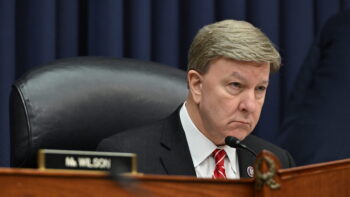
WASHINGTON: Congress must act by fall — before the election — and pass some sort of answer to sequestration, says the chairman of the Senate Armed Services Committee.
Sen. Carl Levin told reporters that his colleagues are beginning to focus on the fact that layoff notices for hundreds of thousands of defense and government jobs will begin going out before the election. The top defense policy lawmaker in the Senate pointed to this week’s statement by GOP Sen. Lindsey Graham that he had “crossed a Rubicon” and would agree to — effectively — raising some taxes to avoid a fiscal meltdown before the automatic budget cuts known as sequestration take effect Jan. 3.
“It’s very, very likely that there will be no sequestration because 90 percent of us don’t want it to happen,” Levin said at a Defense Writers Group breakfast. But he also acknowledged that the “truly important question is when” Congress will act. He said something must happen “this fall,” before the election — not during the lame duck session as so many on and off Capitol Hill have assumed will happen.
Levin said the solution doesn’t have to be a comprehensive solution: “some kind of a deal. The can will get kicked down the road.” He has proposed cuts of $200 billion annually, divided equally between defense and entitlement spending.
However, a GOP strategist and former spokesman for Sen. John Warner was skeptical Republicans will support a deal.
“Ideally, Congress would act on sequestration and forge a major agreement on debt before the lame duck, but there’s very little enthusiasm for that right now among Republicans,” John Ullyot writes in an email to Breaking Defense. “The better Romney looks for November, the less likely Republicans are going to come to the table before the election, when they see their hand could be dramatically strengthened for any ultimate deal.”
If Congress doesn’t act well before the elections, then the financial markets are likely to come to the conclusion that Congress has once again lost its mind and cannot be trusted to act responsibly. A further downgrade of US financial instruments has already been signaled by the rating agency Standard & Poor’s if Congress does not act.
When it issued the previously unthinkable downgrade of US debt last August, S&P said this:
“The outlook on the long-term rating is negative. We could lower the long-term rating to ‘AA’ within the next two years if we see that less reduction in spending than agreed to, higher interest rates, or new fiscal pressures during the period result in a higher general government debt trajectory than we currently assume in our base case.”
Should any member of the House or Senate doubt that America could become an international financial laughingstock if they do not act before layoff notices flood the Post Office just days before the November elections — as would be required by the WARN Act — they should read the justification for S&P’s downgrade:
“We lowered our long-term rating on the U.S. because we believe that the prolonged controversy over raising the statutory debt ceiling and the related fiscal policy debate indicate that further near-term progress containing the growth in public spending, especially on entitlements, or on reaching an agreement on raising revenues is less likely than we previously assumed and will remain a contentious and fitful process.”
So far it would seem that any reasonable person must conclude that the legislative process on sequestration and the debt remains “a contentious and fitful process,” leaving little doubt of the stakes come fall.
Will Sen. Graham be joined by gathering droves of responsible Republicans, or will Grover Norquist’s dangerous no-new-taxes pledge remain party orthodoxy in the face of overwhelming evidence that the federal government cannot function without greater flexibility and more responsible actions by our lawmakers? That is the question anyone on Capitol Hill who cares about their country must answer in the next 120 days or so.
Multi-ship amphib buy could net $900M in savings, say Navy, Marine Corps officials
Lawmakers gave the Navy authorities to ink a multi-ship amphib deal years ago, but the service has not utilized that power yet.


























